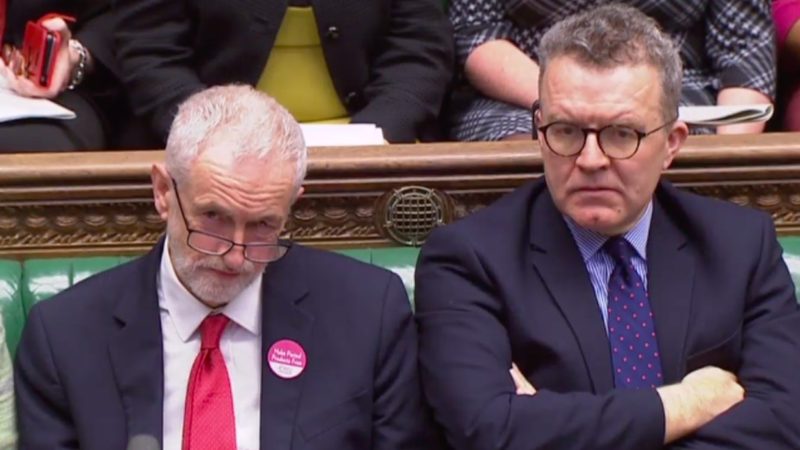
The ground beneath us keeps moving so fast, we can’t keep up. It won’t stop. This fluidity is the new norm. Brexit is changing everything but Brexit itself is just a symptom of a political system no longer fit for purpose. Here we are, in the 21st century, with a democratic and party system build for the 19th century. It is analogue, black and white, two-channel politics in a world of on-demand 4k HD.
The parties can’t contain the pressure for change but can’t transform themselves into this digital, networked world of individual and collective autonomy. We care about Labour – for our party, it might be the best of times and the worst.
The worst is a party at war with itself – between Watsonites and Corbynites. Brexit is being used as a proxy to draw battles lines with a second referendum being the fault line of the dispute. The never-ending tension between the two sides has rumbled and erupted since Jeremy was elected. But it’s now got to a stage where it’s hard to see how left and right can cohabit in the same party much longer.
Meanwhile, exciting innovation comes from outside of Westminster. Labour at its best is shaping a new deal in Wigan, developing deep participation in Barking and Dagenham and a foundational economy in Preston. Other council such as Leeds, Plymouth and Doncaster are all innovating around new themes and techniques to deal with austerity and new technology.
The Westminster gangs are battling it out in what this time looks a fight to the death. It’s easy to see a big group of MPs forming a ‘new’ Labour parliamentary party/group, possibly enough to become Her Majesty’s Opposition, while Corbyn retains control legally and financially of the party but with a smaller group of MPs. But even if everyone stays in the same tent, it’s now so dysfunctional that you can’t see how it will ever work effectively.
Maybe this is the way it has to be – a good thing if the party breaks up – but only if it can work out how to be a negotiated progressive campsite, not an imposed and suffocating big tent. Of course that demands proportional representation but so far the party wont go there.
The missing ingredient is the soft left. This is the group that always played the cartilage role, mediating the harder elements of the right and left. But as ever within Labour, it gets squeezed because it is less instrumental and sees grey to be discussed rather than just black or white to be imposed. Think of a spectrum that spans Keir Starmer or Jess Phillips to Clive Lewis or Angela Rayner and you are about there. But can such a coalition be mobilised to help the left modernisation of the party?
Jeremy was the only name on the ballot paper in 2015 and 2016 offering change – that’s why I voted for him and it’s why he won. But he hasn’t offered anywhere near enough change in terms of overall strategy and the culture and nature of the party. Outside of broad-brush economic policy, it all feels very ho-hum. What is the vision of the Britain we want to create, what is the good society and the good life, what kind of strategic internationalism do we want, is the environment yet at the heart of our thinking and what is our theory of change around the role of the party and civil society – and what do we see as the agent of change in the 21st century? Is any of this clear and popular?
Perhaps Jeremy’s vital role is to be the bridge between how wrong New Labour had become and a project that is genuinely transformative. Perhaps he is absolutely necessary but too far from sufficient.
Compass, the organisation I chair, will be addressing all these issues this Saturday, at a conference slightly ironically labelled ‘leaving the 20th century’. Joining us will be Clive Lewis, Lisa Nandy, Laura Parker from Momentum, Paul Mason and a host of others. Most of the day will be about the participation and voice of the 300 plus people who attend – building a view of what 21st century politics should resemble. Want to be part of it? Join us.




More from LabourList
‘Welfare reforms still mean a climate of fear. Changes are too little, too late’
Welfare bill: Which MPs are still voting against reforms?
‘The tap end is getting hotter – and Welsh Labour might get burned’